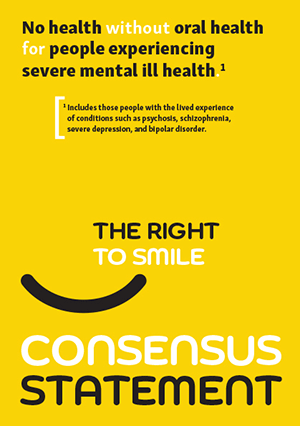It is well recognised that people experiencing severe mental ill health can have their lives restricted and shortened by conditions such as diabetes and heart disease. However, less recognised is that they also experience serious inequalities in oral health, with high rates of tooth decay, gum disease and tooth loss. This can affect functions as basic as eating and speaking. It can damage a person’s confidence and self-esteem. It can interfere with relationships or keeping a job. Poor oral health is also linked to other health conditions like diabetes and heart disease.
The Right to Smile consensus suggests that tackling this inequality is overdue and deserves urgent attention from services, researchers, and policymakers. Poor oral health should not be an inevitable consequence of experiencing severe mental ill health.
The impetus for the consensus statement arose from an oral health group established by the Closing the Gap Network, a UKRI funded initiative to develop a mental health network exploring ways to reduce the health gap faced by people experiencing severe mental ill health. Our Oral Health Group comprises people with lived experience, carers, mental health practitioners, dental professionals, researchers, and policy makers.
The Right to Smile consensus statement sets out a number of five year targets to improve the oral health of people with severe mental ill health.



